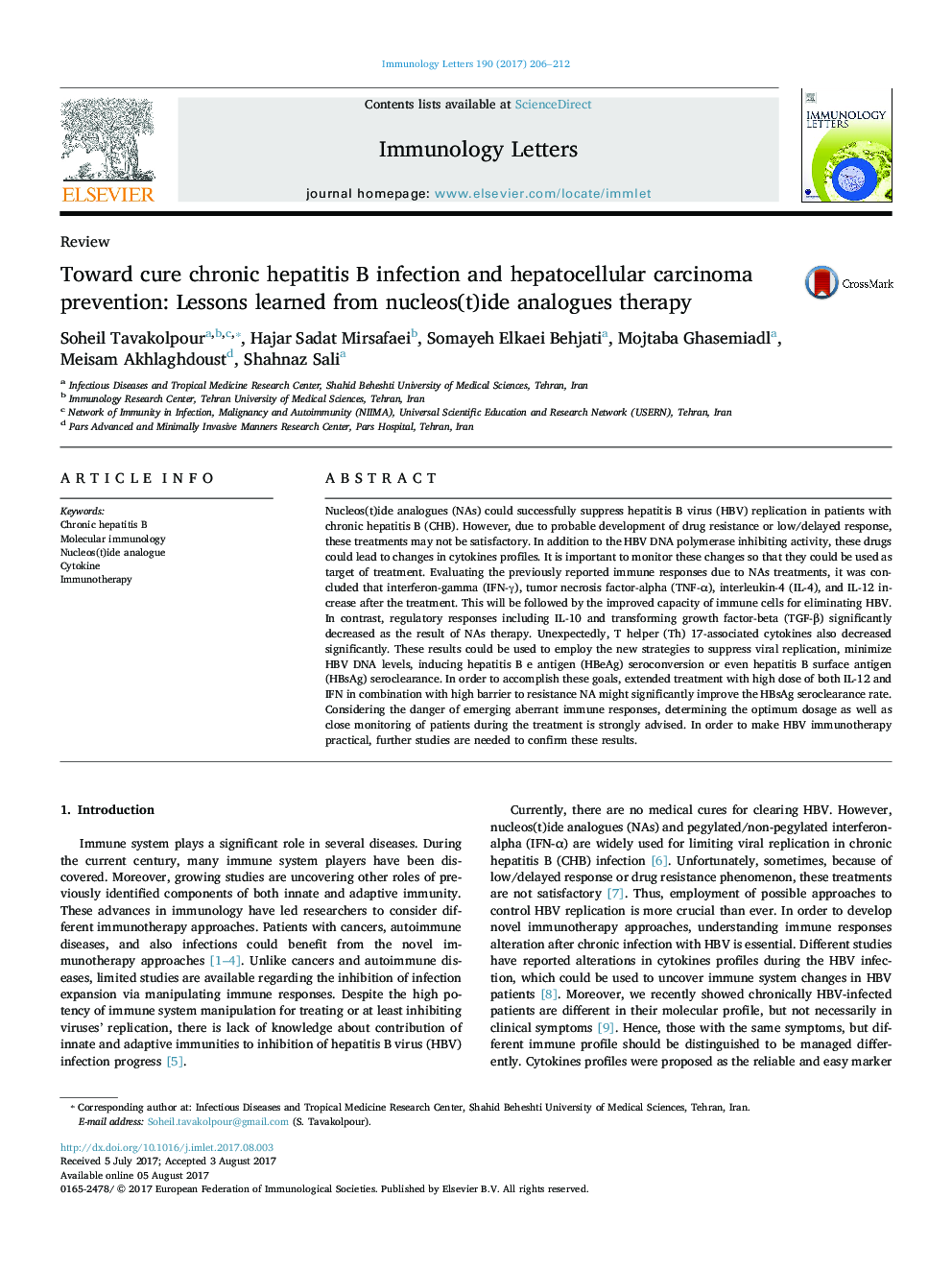| Article ID | Journal | Published Year | Pages | File Type |
|---|---|---|---|---|
| 5666576 | Immunology Letters | 2017 | 7 Pages |
â¢Impairment of immune responses prevents clearance of Hepatitis B infection.â¢Hepatitis B infection may be cleared through promotion and impairment of effector and regulatory responses, respectively.â¢Extended treatment with high dose of both IL-12 and IFN in combination with high barrier to resistance nucleos(t)ide analogues might significantly improve the HBsAg seroclearance rate.
Nucleos(t)ide analogues (NAs) could successfully suppress hepatitis B virus (HBV) replication in patients with chronic hepatitis B (CHB). However, due to probable development of drug resistance or low/delayed response, these treatments may not be satisfactory. In addition to the HBV DNA polymerase inhibiting activity, these drugs could lead to changes in cytokines profiles. It is important to monitor these changes so that they could be used as target of treatment. Evaluating the previously reported immune responses due to NAs treatments, it was concluded that interferon-gamma (IFN-γ), tumor necrosis factor-alpha (TNF-α), interleukin-4 (IL-4), and IL-12 increase after the treatment. This will be followed by the improved capacity of immune cells for eliminating HBV. In contrast, regulatory responses including IL-10 and transforming growth factor-beta (TGF-β) significantly decreased as the result of NAs therapy. Unexpectedly, T helper (Th) 17-associated cytokines also decreased significantly. These results could be used to employ the new strategies to suppress viral replication, minimize HBV DNA levels, inducing hepatitis B e antigen (HBeAg) seroconversion or even hepatitis B surface antigen (HBsAg) seroclearance. In order to accomplish these goals, extended treatment with high dose of both IL-12 and IFN in combination with high barrier to resistance NA might significantly improve the HBsAg seroclearance rate. Considering the danger of emerging aberrant immune responses, determining the optimum dosage as well as close monitoring of patients during the treatment is strongly advised. In order to make HBV immunotherapy practical, further studies are needed to confirm these results.
